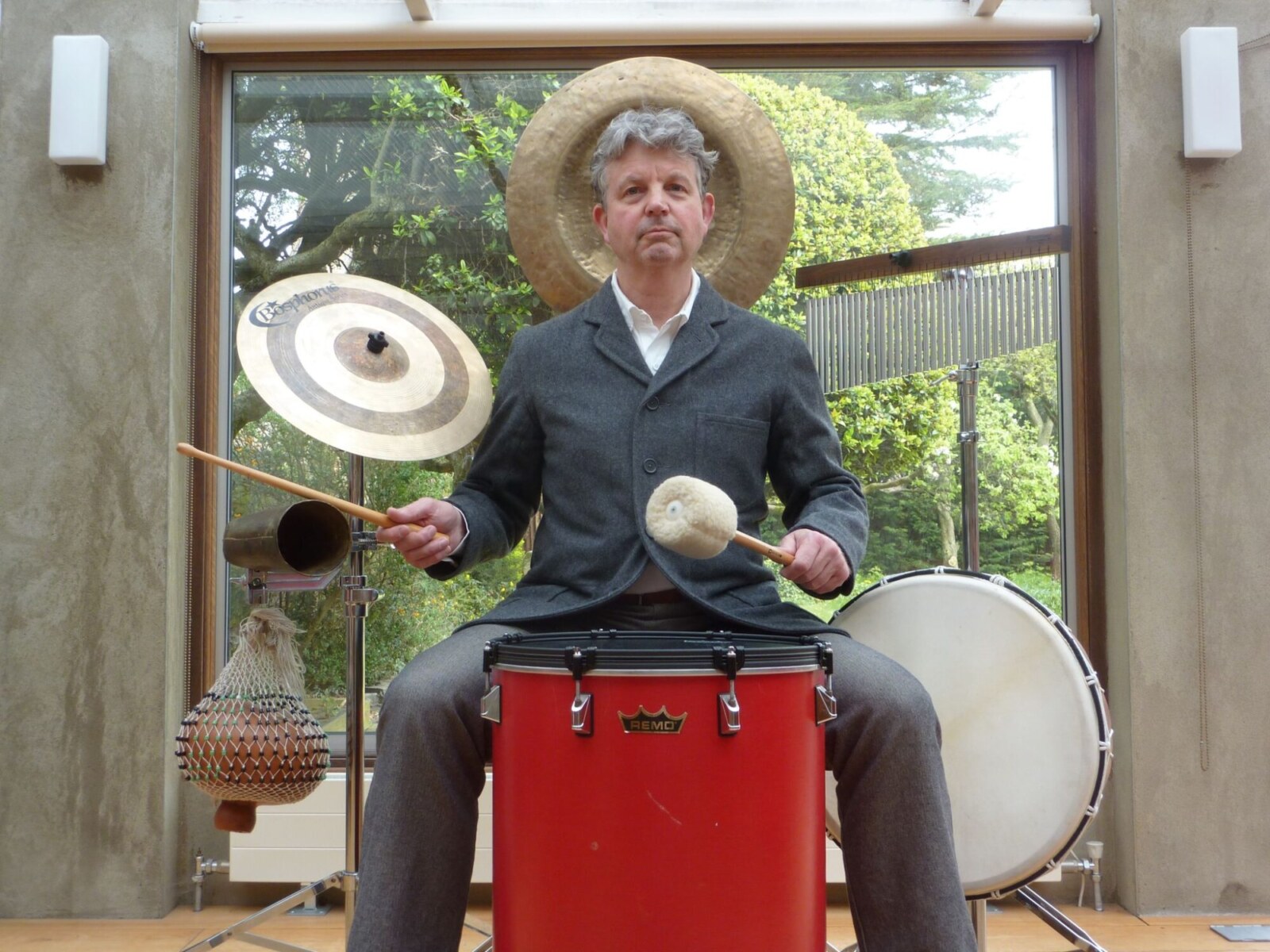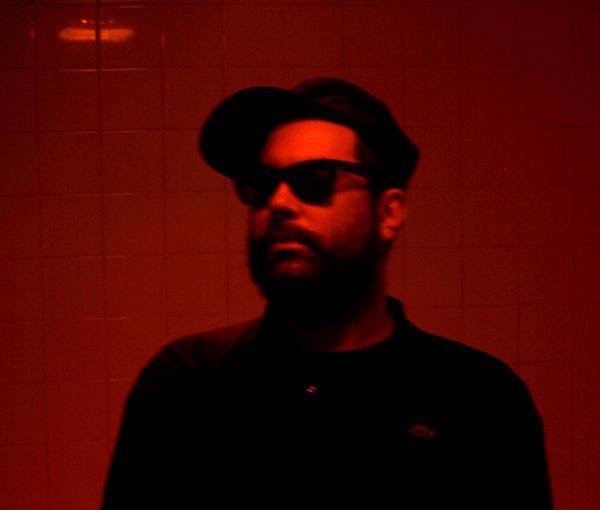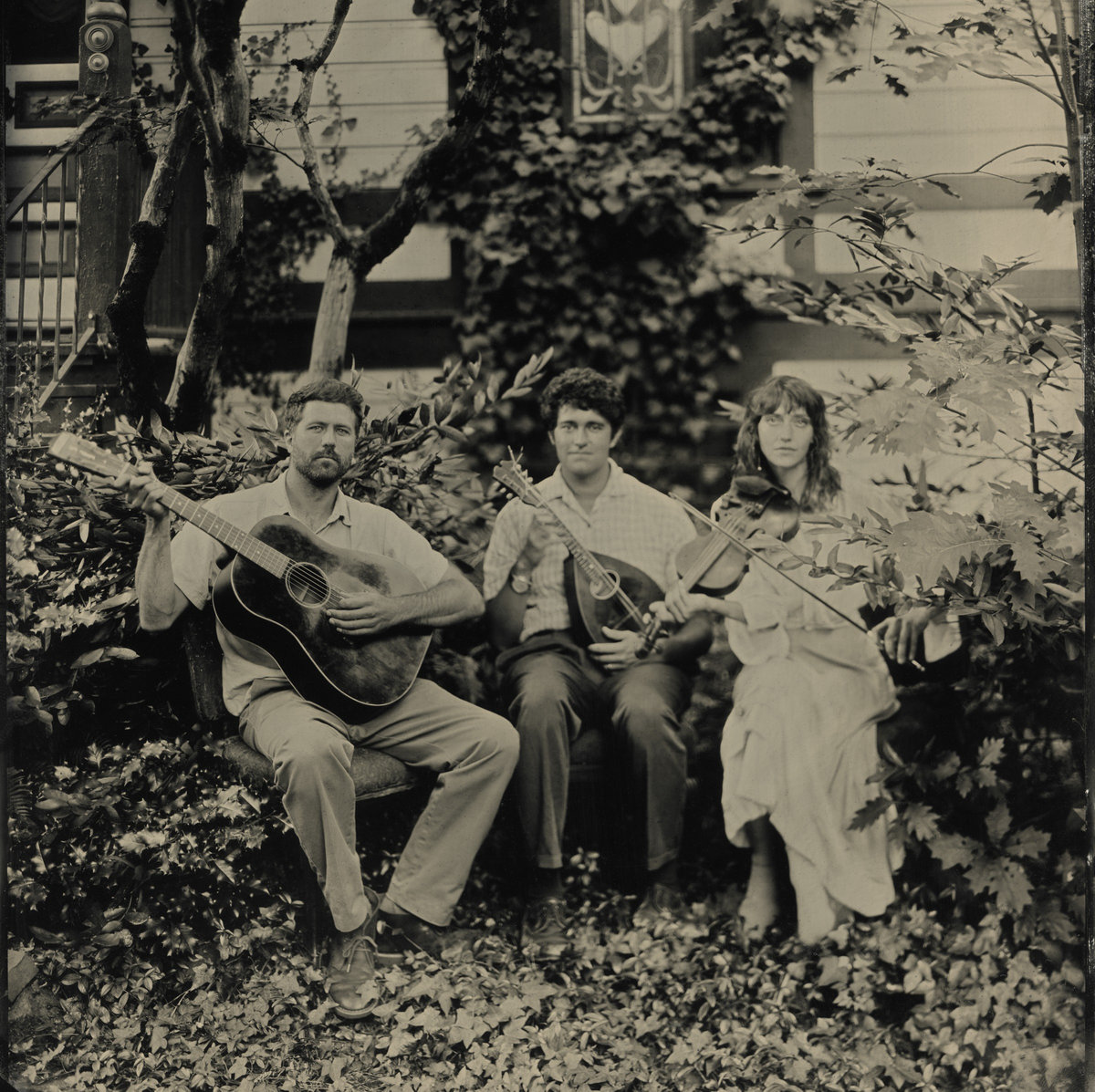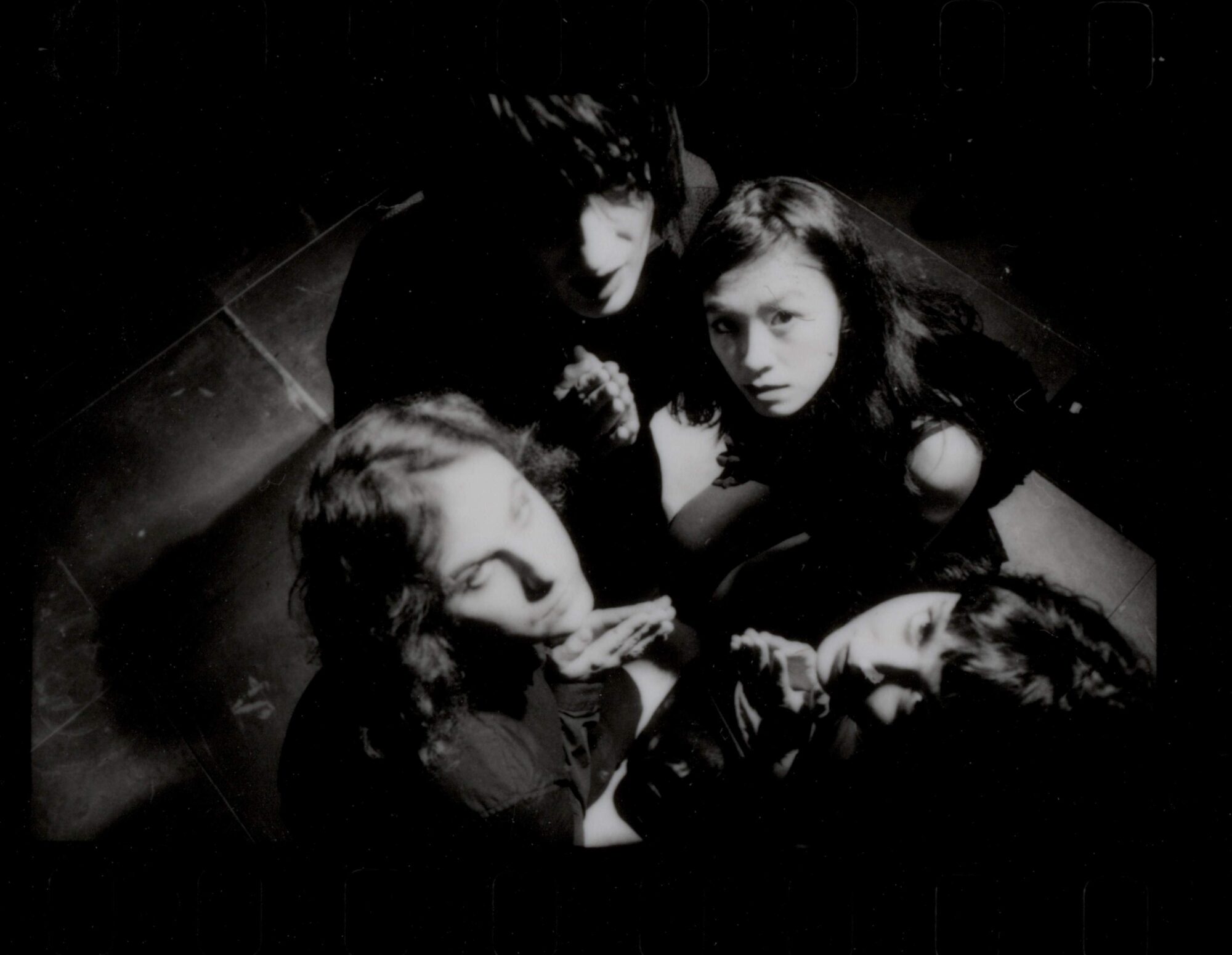Drumming with Dead Can Dance & Parallel Adventures | A Memoir by Peter Ulrich
Drumming with Dead Can Dance & Parallel Adventures is the upcoming book by drummer/percussionist with Dead Can Dance, Peter Ulrich, out November 15th via Red Hen Press.
The upcoming book recounts the author’s experiences as drummer/percussionist with Dead Can Dance through the 1980s, his contribution to This Mortal Coil and being a guest on several 4AD recordings. It’s an in-depth memoir written in a very exciting way, recalling all those tiny details we all wanted to know more about, including his two solo albums and more! Highly recommended.
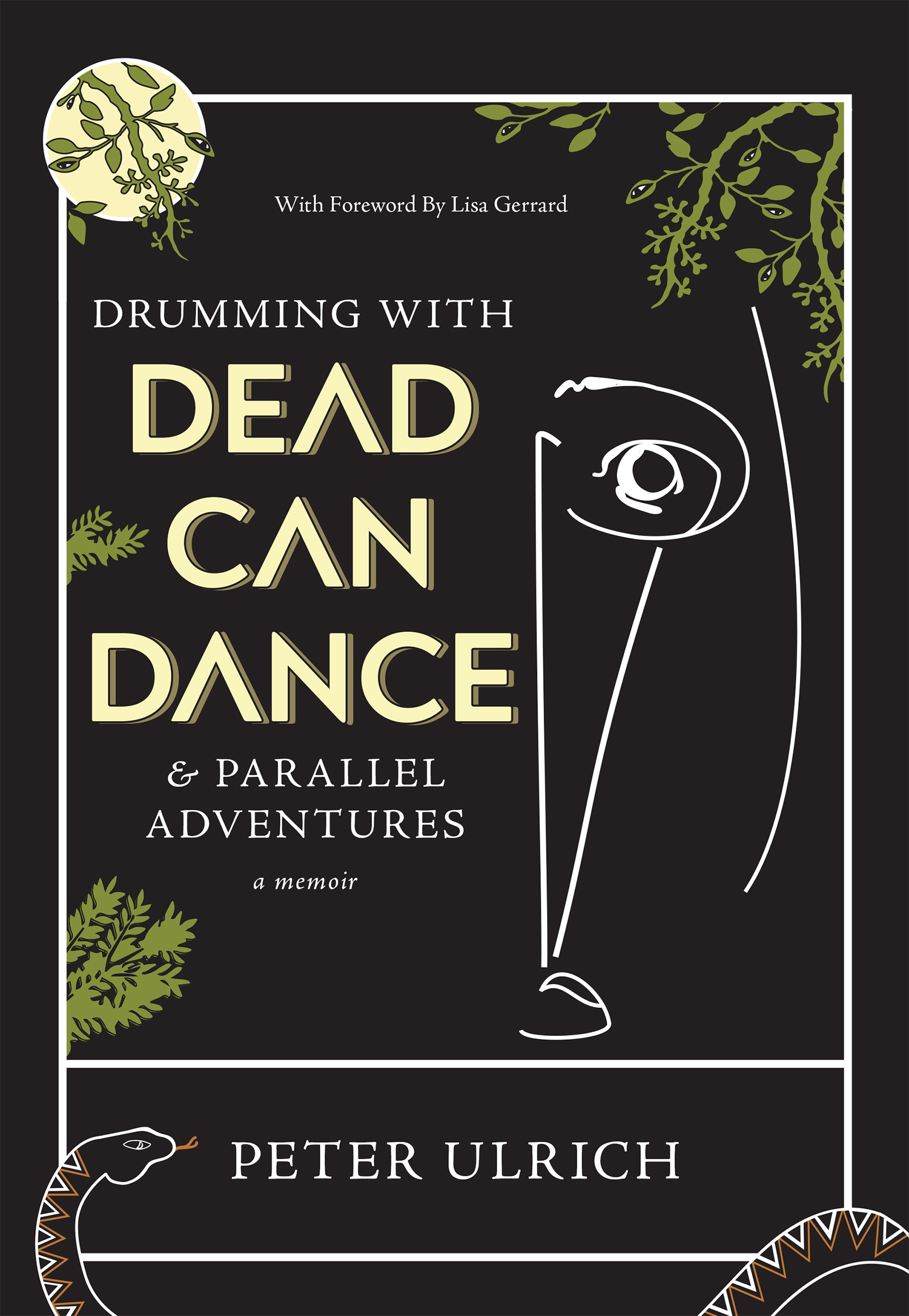
“My recollections are simply dictated by what actually happened”
Dead Can Dance is not a conventional band, and this is evidently not a typical sex’n’drugs’n’rock’n’roll memoir – was that intentional?
Peter Ulrich: I didn’t consciously either follow, or not follow, any particular conventions for music memoirs. My recollections are simply dictated by what actually happened. Even at the outset we were on the fringes of the “rock” scene, and then grew increasingly distant from it. We weren’t saints, but the hardcore partying never really came into our functioning, either in the studio or on the road. I don’t imagine that makes us unique, but I think we avoided a large chunk of the usual clichés. There are many interesting memoirs drawn from the hedonistic side of the r’n’r circus – some hilarious, some tragic, many both – but mine is more focused on how our musics developed and worked, the unopiated personalities of the protagonists, and a broader journey through music and the machinations of the music industry.
OK, but there are still some good stories, quirky anecdotes bound up in there, which might surprise a few readers?
There’s an interview in a Sounds (UK music paper) issue from 1987 which starts by saying it’s a shock to discover that DCD inhabit a council flat on the 13th floor of a tower block in Millwall when anyone familiar with the music would assume they live in a grand old castle or on top of a big white fluffy cloud. The music Brendan (Perry) and Lisa (Gerrard) create is beautiful and sometimes otherworldly, but alongside that we were just people who had to shop, clean and cook, who chatted and joked, all the normal stuff – you can’t exist 24/7 in a creative bubble. Many successful bands/artists will recount that a lot of the funny and quirky things happened in the early days, before your art provides financial stability, when you’re living in each others’ pockets, touring on a shoestring, doing the apprenticeship. Lisa’s foreword says how she is reminded of beer-stained backstage carpets, grey skies and hunger. So yes, we have our share of tales to tell.
And you manage to recount events of those formative days in the 1980s with a surprising level of detail.
I do feel I remember what happened pretty clearly – but I allude here and there to instances where Brendan or Lisa recalls a particular event quite differently to me. I’ve tried to get a balance between our various memories, and between us I think we’ve been able to piece it all together. I was also part-managing the band in the early days, from which I’ve retained cash books, contracts, correspondence and such like, so that helped with checking facts and dates, and also enables me to give, perhaps, a more unusual slant on our story in places.
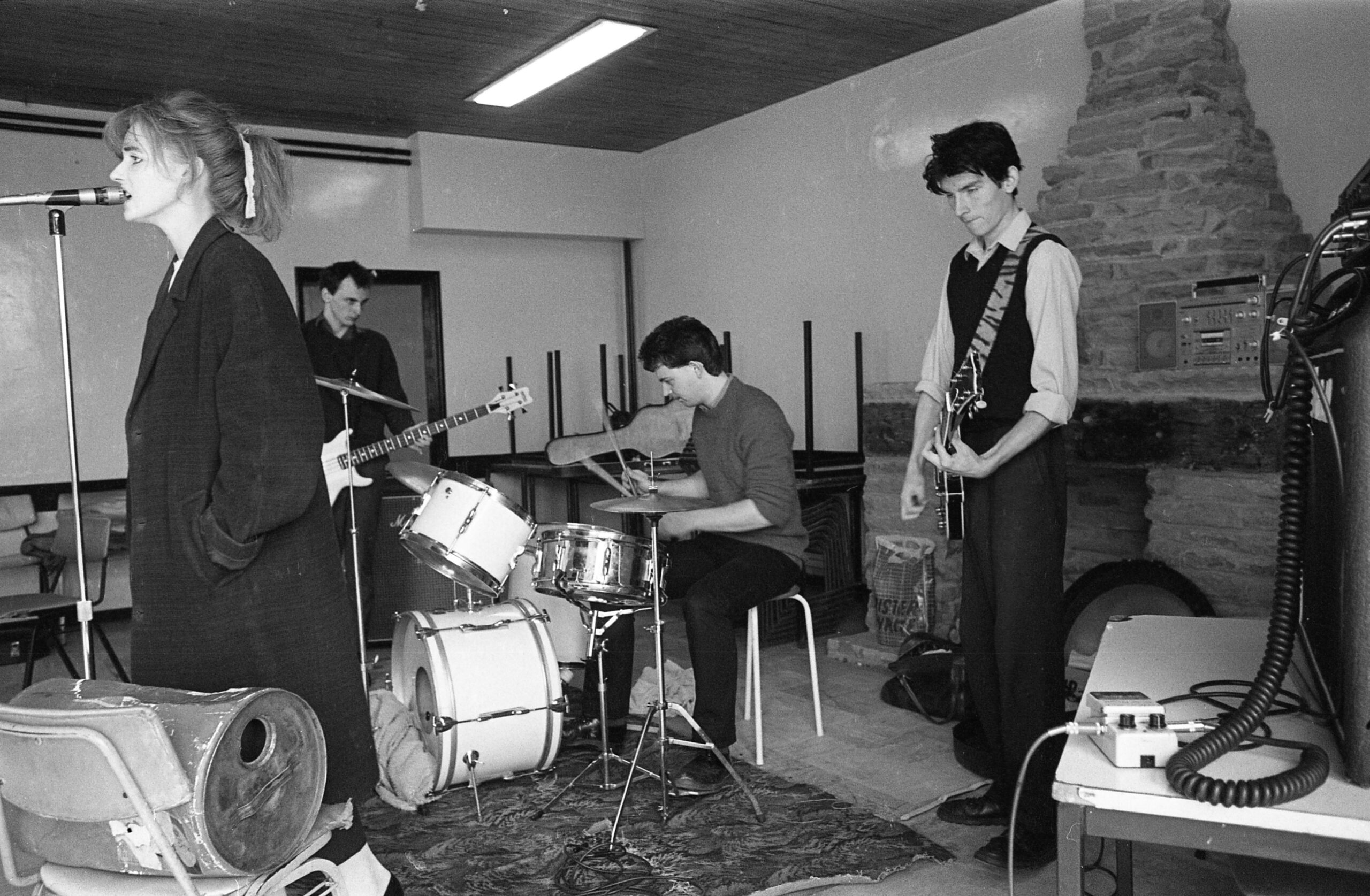
You tell of strain – “frequent and explosive arguments” – in the relationship between Lisa Gerrard and Brendan Perry. Are they comfortable with you bringing that to light?
I don’t think I’ve revealed anything they haven’t openly discussed before in interviews themselves. It’s neither something they’re proud of, nor seek to conceal. They encouraged me to tell it how it was, and I hope I’ve also conveyed the great strengths and positivity in their relationship, and got the right balance. They both read my drafts and I would have cut anything they weren’t comfortable with. Their conflicts happened because they’re so passionate about the music they write – anyone who’s enjoyed Dead Can Dance benefits from that, so it’s been an integral part of the process.
You’re also candid about your own shortcomings – telling of stage nerves and some early struggles with performance. Did you have any hesitation about revealing those things?
None whatsoever. I think it says a lot about Brendan and Lisa that, when we first met, they reacted to my love of what they were doing, rather than my technical ability – they wanted to work with people who bought into their vision and they were prepared to help me develop as a musician and performer. So by telling this side of my personal story, I hope it both helps expand the understanding of the people involved and gives inspiration and confidence to others who may be just starting on their journey. It’s one thing to sing and/or play an instrument, but quite another to fit into any kind of group or ensemble, and to be able to perform up on stage under the lights and in front of an audience, or in the recording studio when the red light goes on.
You contrast your own excitement with Lisa’s and Brendan’s relief at securing your recording deal and heading out on that first overseas tour with the Cocteau Twins in 1983. Was there really such a marked difference in those reactions?
Yes. I’m not saying Lisa and Brendan weren’t at all excited by those developments, but their journey to that point had been very different to mine. They’d each been pursuing a dream for years, made a lot of sacrifices, taken risks and struggled to exist. But I’d just been in the classic “right place, right time” and in less than nine months of me joining DCD, we’d signed to 4AD, recorded our first album, and we’re off touring the Netherlands with the Cocteaus. It all happened very fast for me and at times I found it difficult to grasp the reality of it all.
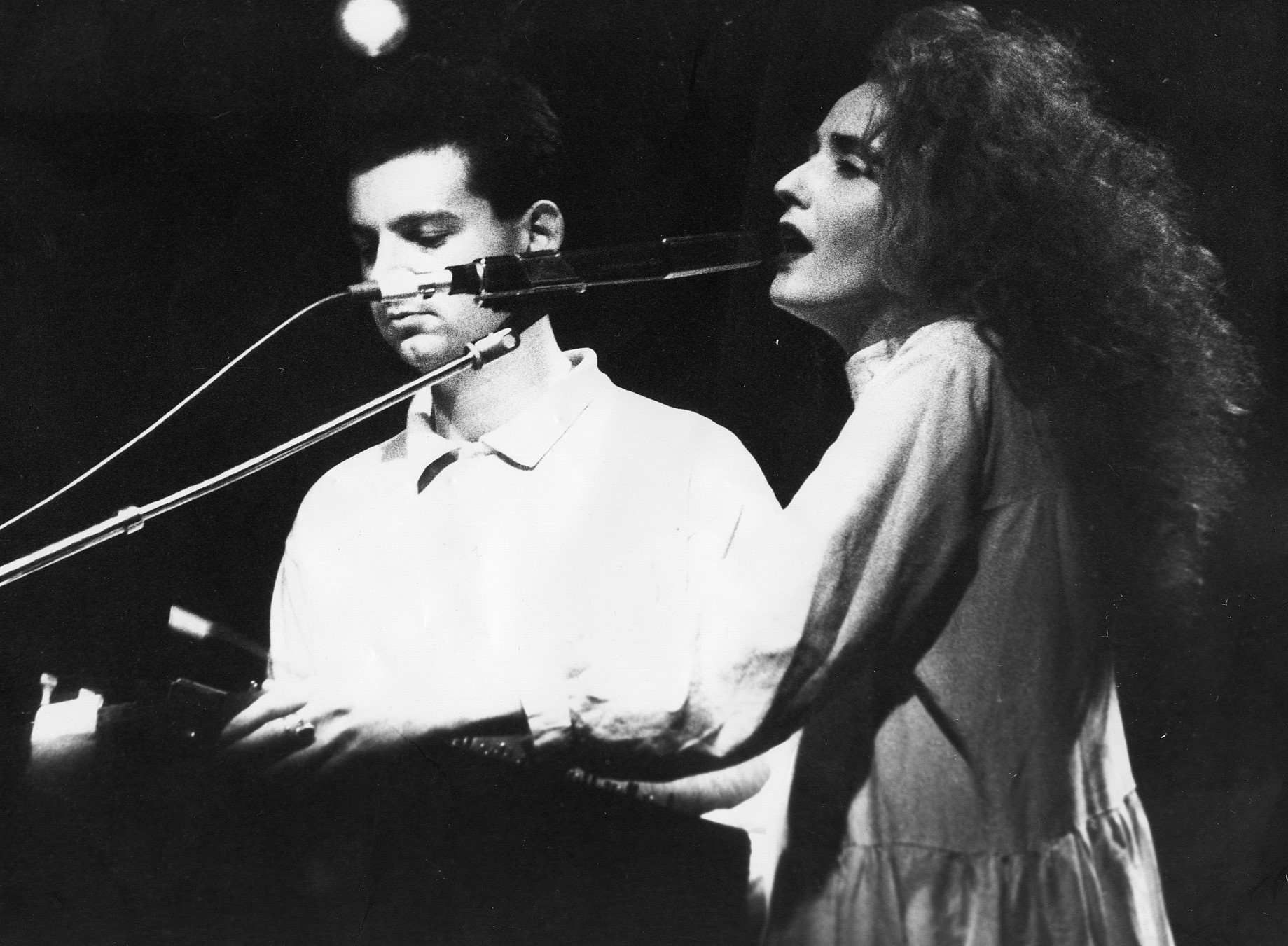
The development of DCD’s musical style from the first album to the second – ‘Spleen and Ideal’ – is very marked and, from the way you describe it, was seemingly inspired or facilitated by a couple of pieces of equipment. Is that a fair summation?
Certainly “facilitated,” not so much “inspired.” The development of the style of DCD’s music came very much from both Brendan and Lisa deriving inspiration from musics way beyond contemporary rock and pop. Lisa had her love of opera (Maria Callas in particular) and the exposure in her youth to Irish, Greek and Arabic musics; Brendan also has the Irish roots, was exploring African and Middle Eastern musics, and had long been drawn to dramatic orchestral arrangements from John Barry to Nino Rota. So, although when I first met them we lined up as a relatively regulation guitar-bass- drums band – albeit with Lisa’s yang ch’in (hammered dulcimer) in the mix – they were both bursting at the seams to expand into broader territories. When we got the advance from our first publishing deal, Brendan immediately bought a primitive Yamaha CX5 music computer and was suddenly, overnight, able to compose parts for strings, brass and so on, so the ‘facility’ for composing started to catch up with the ‘inspirations’ and aspirations.
“It was then extraordinary to be involved in the live performances”
And from that point on, you remained intrinsic to DCD’s live performances but were far less involved in writing and recording. How did that sit with you?
Very comfortably. I make it clear that the music of DCD has always been written by Brendan and Lisa – they create every element of the sound that is recognisable as DCD. It was essentially always that way, so it wasn’t a situation where I was suddenly being marginalised. It simply changed the way the creative process functioned, and allowed the music to develop in a way that I loved. It was then extraordinary to be involved in the live performances of that music – way beyond anything I’d ever imagined playing.
You left DCD in the early ’90s for family reasons. How hard a decision was that, and did you think that was the end of your music career?
The decision itself wasn’t hard – I had no doubt that I wanted to raise a family, and I couldn’t leave my wife to cope with young children and her demanding job while I disappeared on tour for a couple of months at a time. So when our second daughter was born in 1991, I knew the moment had come. Nevertheless, it was a tough wrench to leave DCD, and I thought it likely my musical aspirations would return to the confines of home. There were two amazing moments for me in 1995 when, first, Brendan invited me over to his Quivvy studio in Ireland to participate in preliminary recording sessions for what would become DCD’s ‘Spiritchaser’ album, and second, while I was there, when he offered to record and produce my first solo album at Quivvy. That was another life-changer for me.
Alongside pursuing your solo career, you then continued following Dead Can Dance as a “fan with a backstage pass.” To what extent was that a conscious plan?
For one reason or another, I only managed to catch one show during the two tours following my departure (1993 and ’96). Then, while I was seeking the release deal for my first solo album – ‘Pathways and Dawns’ – Brendan and Lisa announced the end of Dead Can Dance so, with great sadness, I thought DCD was consigned to history and deeply regretted not having managed to experience more shows from the audience.
The resurrections of DCD in 2005, 2012-13 and again in recent times thankfully presented more opportunities and, at the last count, I think I’ve managed 16 shows across seven countries as a “groupie.” The excitement of seeing them live has never diminished and I hope to add a good few more to my list. The current touring band line-up has been pretty stable since 2012 and they are a wonderful group. Drummer Dan Gresson has now overtaken me numerically in his tally of live performances with DCD and it’s fun to compare notes with him. I’ve always kept in touch with both Brendan and Lisa, and like to keep up with all their various projects, so the “Parallel Adventures” part of my book aims to capture as much as possible of the divergent paths we’ve taken.
Is your account of how Lisa came to do the ‘Gladiator’ movie score true?
Well, it’s how I heard it, probably via Brendan, though I don’t recall now. I didn’t know anything about it at the time Lisa was actually working on it. I’ve seen or heard the story told a little differently since, but the essential elements remain much the same. It’s also been fascinating to hear Hans Zimmer subsequently talk about working with Lisa – those moments when you’re in the same room or studio with her and you can’t quite believe what you’re hearing!
You also speak very fondly of Brendan’s solo works.
In my view, he’s a genius with music. I can truly say he’s never written or arranged any piece that I haven’t loved. There are varying degrees in that, but only on a scale from great to epic. He toils over every note, every beat, every sound, every inflection to make his music the best it can be. It matters so much to him, and he’ll never compromise, never take a short cut, and never be distracted by any temptation to be more ‘commercial’ or whatever. He’s devoted to the purity of what he’s creating.
You followed your own two solo albums with a Collaboration project which spawned a further three albums. That seemed a long time fermenting before it took off – why was that?
New York-based label City Canyons released my second album – ‘Enter The Mysterium’ – in 2005 and we gave a lot of time and energy to promoting it. I’d signed a three-album contract, but when it came to starting on new material, owner/producer Trebor Lloyd asked me if I would try working with him and another of his artists, Sara Wendt, on creating something together – just a one-off song at that point. It worked really well and City Canyons released a digital single – ‘Hanging Man’ – with accompanying YouTube video in 2009. We agreed to do another couple of tracks, bringing in more artists, with the aim of making a three or four track EP. Each time we were excited by the results, enjoyed the process, and found the project taking on its own lifeforce, veering off in unexpected directions. The EP was dropped in favour of working towards a full album. Eventually 12 songs were accumulated (while a couple of others were written but fell by the wayside), and then there was a delay while we explored various avenues for the album release, so ‘The Painted Caravan’ finally hit the shelves in 2013. In the meantime, we’d carried on writing and recording so a second album with 14 songs was released in 2015 – ‘Tempus Fugitives’ – and the third album of the trilogy followed in 2019 – ‘Final Reflections.’
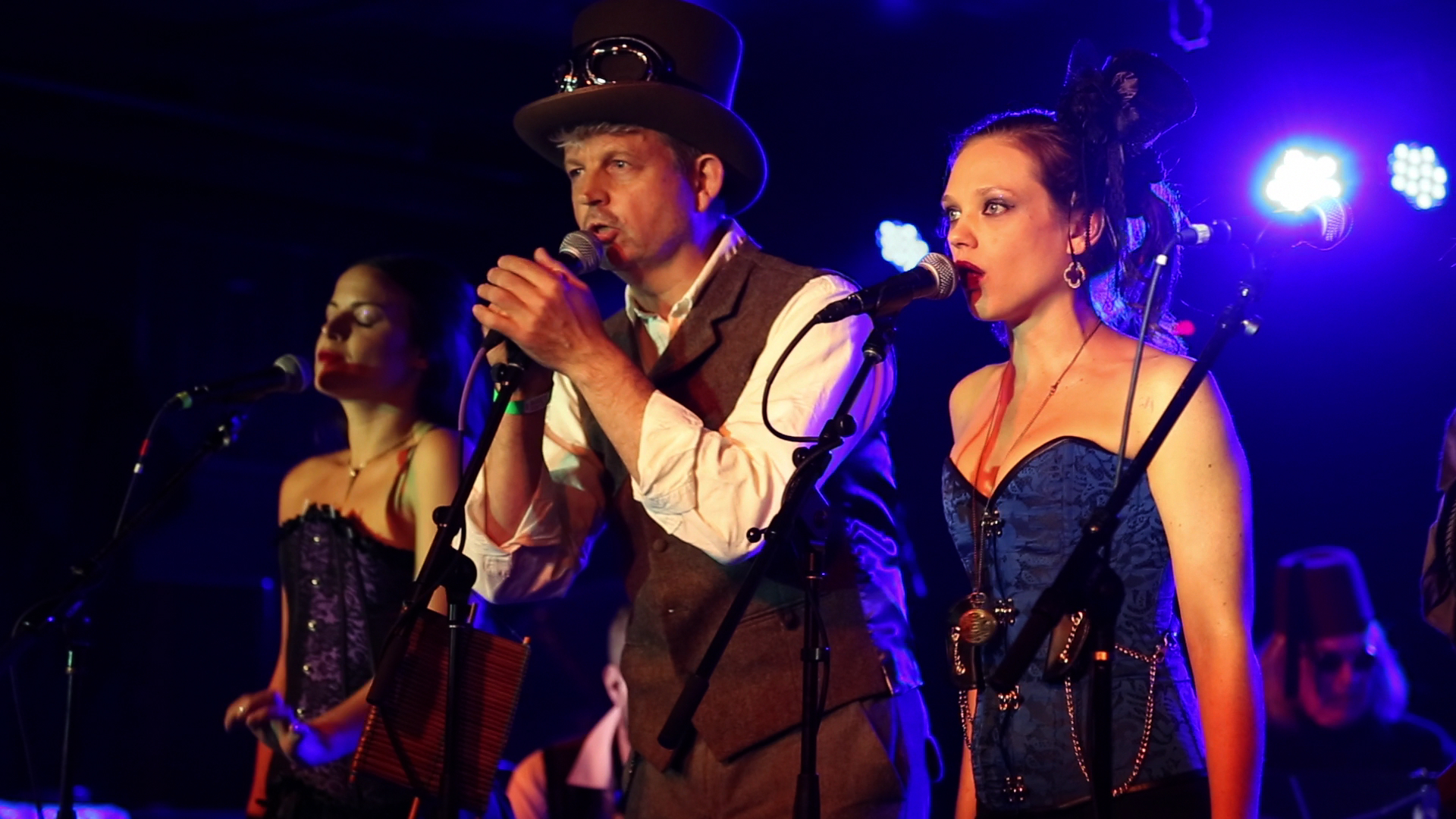
During that time The Peter Ulrich Collaboration made just one live appearance, but you portray it as quite an epic event. Is that how it felt?
It was a huge logistical exercise for sure. We’d created a rod for our own back by having dozens of musicians involved in the studio recordings and using a vast array of instruments, and now that had to be pared down to a feasible ensemble for live performance. We still ended up with a 17-strong band, all from the New York scene except me heading over from the UK. The original booking we had at the 2015 Steampunk World Fair in NJ fell through, so Trebor then managed to secure a booking at Webster Hall on Lower East Side in Manhattan, but this required a much bigger promotional effort as we had to create an audience rather than pitching up to a ready- made one. Then I had a huge battle to get my visa, which finally arrived with literally minutes to spare. I recount the whole story of staging the show in detail in the book to demonstrate how all the elements come together behind the scenes, and ultimately the show was an amazing experience.
When did you decide to write the memoir and how did it come to fruition?
I can’t remember exactly when I first thought of doing it, but I’d guess it was around eight to 10 years ago. I wrote four chapters very quickly, showed them to Brendan and Lisa, to my wife and daughters, Trebor and a handful of close friends. The reaction was generally very encouraging, with also some good suggestions for improvements, but then it got put on the backburner. When the Covid-19 pandemic resulted in lockdown in April 2020, I suddenly found myself with time on my hands, and no excuse not to get back to it, so over a few months I devoted myself to completing the first draft, checking sources, researching details, and starting the process of tracking down photos. After showing the full draft to Brendan and Lisa, who gave me a bundle of valuable feedback, I made a second draft with corrections, additions and some ruthless editing to make it much more readable. I next started doing the rounds of publishers, initially approaching the majors. I got a lot of interest, and several requests for the draft, but didn’t hit on an editor I felt had a real empathy with it. I then approached a handful of independent west coast (US) publishers and immediately got the response I’d been looking for from Kate Gale at Red Hen Press. That was October 2020, and finally I give literary birth in November 2022.
How did you find writing a book compares to composing songs?
Oh, different and similar. The differences are pretty obvious – the tools involved – but the processes have a lot in common. Both feature moments when you’re in “the zone” and the output flows, and other moments where you hit a barrier which takes a seemingly inordinate amount of time to negotiate. Both feature moments of elation, when you’re really excited about a particular passage, and moments of self-doubt, when you question everything you’re doing. A similarity can certainly be drawn between completing a chapter of the book and completing a song which will form part of an album – there’s the same feeling of temporary satisfaction, but tempered with the need to move on. And there’s much the same feeling of achievement when you finish, but also questioning if that is really it, or if you should add or tweak anything further. Physically, sitting and just typing is a lot more sedentary than recording, so I’ll work on keeping a balance, but I am quite smitten by the literary process, so I think there will be more to come.
So, leading on from that, are you actually working on anything?
Well, since you ask, I have a complete first draft of a novel which I’m currently editing. It has a historic setting with themes of folklore, superstition and music, and I have in mind some ideas for a soundtrack album. But at this moment I need to keep focused on the launch of the memoir.
Finally, is there any chance we will ever see you on the DCD drum stool again?
I suppose you “never say never” to a question like that, but it’s highly unlikely. Current incumbent Dan is a far better drummer than me – that’s not false modesty, that’s just a fact. He’s devoted to drumming – that’s what he does. My real passion is writing and creating. Working with Brendan and Lisa gave me the tools, confidence and platform to do that, so the better legacy of my time with DCD is to strive to bring my own projects into being. Having said that, it’s been a great joy to become the self-appointed chronicler of DCD, and it’s made me feel very close to them again. I’ll happily stick to my seat in the audience.
Drumming with Dead Can Dance & Parallel Adventures Facebook
Red Hen Press Official Website / Facebook / Instagram / Twitter
Peter Ulrich interview

